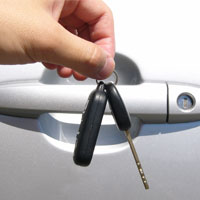8 Best Methods to Lower Auto Insurance Costs in Branford Connecticut

Are you overwhelmed by the sheer number of auto insurance companies in Branford? You’re not the only one! Consumers have so many options available that it can quickly become a real hassle to compare prices.
Finding the best rates in Branford is not rocket science. If you have car insurance now, you stand a good chance to be able to reduce your rates substantially using this information. Nevertheless, Connecticut drivers should learn the way companies market on the web because it can help you find the best coverage.
Verify you’re getting all your discounts
Auto insurance companies don’t necessarily list all their discounts in a way that’s easy to find, so we took the time to find both well-publicized and also the lesser-known ways to save on auto insurance.
- Anti-lock Brake System – Anti-lock brake equipped vehicles are safer to drive and earn discounts up to 10%.
- Multiple Policy Discount – When you have multiple policies with the same insurance company you may save at least 10% off all policies.
- Military Rewards – Being deployed with a military unit could be rewarded with lower premiums.
- Discount for Life Insurance – Companies who offer life insurance give lower rates if you buy life insurance from them.
- Multiple Vehicles – Insuring multiple vehicles on one policy qualifies for this discount.
- Discount for New Cars – Insuring a new car can cost up to 25% less since new cars are generally safer.
- Claim Free – Drivers who don’t have accidents pay much less when compared to frequent claim filers.
- Accident Forgiveness – A few companies allow you one accident without raising rates so long as you haven’t had any claims for a certain period of time.
It’s important to understand that some credits don’t apply the the whole policy. Most cut the price of certain insurance coverages like comprehensive or collision. So despite the fact that it appears you could get a free auto insurance policy, you won’t be that lucky.
For a list of insurers with the best auto insurance discounts in Branford, follow this link.
What happened to insurance agents?
Some people prefer to get advice from a local agent and there is nothing wrong with that. The best thing about getting online price quotes is you can get the lowest rates but also keep your business local.
Once you complete this short form, your coverage information is instantly submitted to insurance agents in Branford who will battle for your insurance coverage. You won’t need to leave your house as quotes are delivered to the email address you provide. How’s that for easy! It’s the lowest rates AND a local agent.
Picking an provider shouldn’t rely on just the price. Some important questions to ask are:
- Do they have any clout with companies to ensure a fair claim settlement?
- Does the agency have a good rating with the Better Business Bureau?
- Which company do they place the most coverage with?
- Can they give you a list of client referrals?
- Do they assist clients in filing claims?
- Do they regularly work with personal auto policies?
If you wish to contact a specific insurance agent in Branford, view this link.
Upon getting answers to your satisfaction to all your questions as well as a affordable price, you’ve probably found an insurance company that can insure your vehicles.
Auto insurance coverage breakdown
Learning about specific coverages of auto insurance can help you determine the best coverages and the correct deductibles and limits. Policy terminology can be difficult to understand and even agents have difficulty translating policy wording.
Uninsured or underinsured coverage
This coverage protects you and your vehicle’s occupants from other drivers when they are uninsured or don’t have enough coverage. Covered claims include hospital bills for your injuries and damage to your vehicle.
Due to the fact that many Connecticut drivers only carry the minimum required liability limits (Connecticut limits are 20/40/10), it only takes a small accident to exceed their coverage. This is the reason having UM/UIM coverage is very important.
Collision coverage protection
This covers damage to your vehicle caused by collision with an object or car. You will need to pay your deductible and the rest of the damage will be paid by collision coverage.
Collision insurance covers things such as rolling your car, damaging your car on a curb, backing into a parked car, hitting a mailbox and crashing into a ditch. This coverage can be expensive, so analyze the benefit of dropping coverage from vehicles that are older. You can also bump up the deductible in order to get cheaper collision rates.
Medical expense coverage
Medical payments and Personal Injury Protection insurance reimburse you for short-term medical expenses such as doctor visits, ambulance fees and chiropractic care. They are often used to fill the gap from your health insurance policy or if you are not covered by health insurance. It covers all vehicle occupants as well as any family member struck as a pedestrian. Personal injury protection coverage is not available in all states and gives slightly broader coverage than med pay
Comprehensive protection
Comprehensive insurance coverage covers damage from a wide range of events other than collision. You first must pay your deductible then your comprehensive coverage will pay.
Comprehensive insurance covers things like fire damage, hail damage, a broken windshield and vandalism. The most you can receive from a comprehensive claim is the cash value of the vehicle, so if it’s not worth much more than your deductible consider removing comprehensive coverage.
Liability car insurance
This coverage can cover injuries or damage you cause to a person or their property. It protects YOU from legal claims by others, and doesn’t cover damage sustained by your vehicle in an accident.
Liability coverage has three limits: per person bodily injury, per accident bodily injury, and a property damage limit. You might see values of 50/100/50 that translate to $50,000 in coverage for each person’s injuries, a per accident bodily injury limit of $100,000, and $50,000 of coverage for damaged propery.
Liability coverage protects against claims such as attorney fees, court costs, loss of income, repair bills for other people’s vehicles and legal defense fees. How much liability coverage do you need? That is up to you, but buy as high a limit as you can afford. Connecticut state minimum liability requirements are 20,000/40,000/10,000 but drivers should carry more liability than the minimum.
Informative consumer insurance sites
Additional detailed information is located at the Connecticut Insurance Department website. Connecticut drivers can report car insurance fraud, read state legal mandates and laws, and download brochures.
Additional helpful sites include QuoteClickInsure.com and this link where you can make Branford auto insurance comparisons.
Smart shoppers get results
Budget-conscious auto insurance is possible from both online companies and with local Branford insurance agents, and you need to price shop both to have the best rate selection. Some insurance providers do not offer the ability to get a quote online and many times these small, regional companies only sell through independent insurance agents.
Insureds leave their current company for any number of reasons including not issuing a premium refund, policy cancellation, high rates after DUI convictions or poor customer service. No matter why you want to switch, finding the right auto insurance provider can be pretty painless.
As you go through the steps to switch your coverage, do not skimp on coverage in order to save money. In too many instances, someone dropped collision coverage only to regret at claim time that they should have had better coverage. The aim is to buy enough coverage at the best price.


